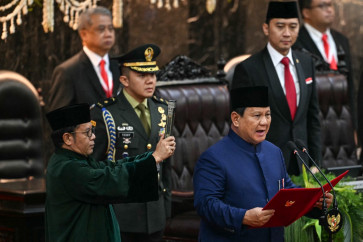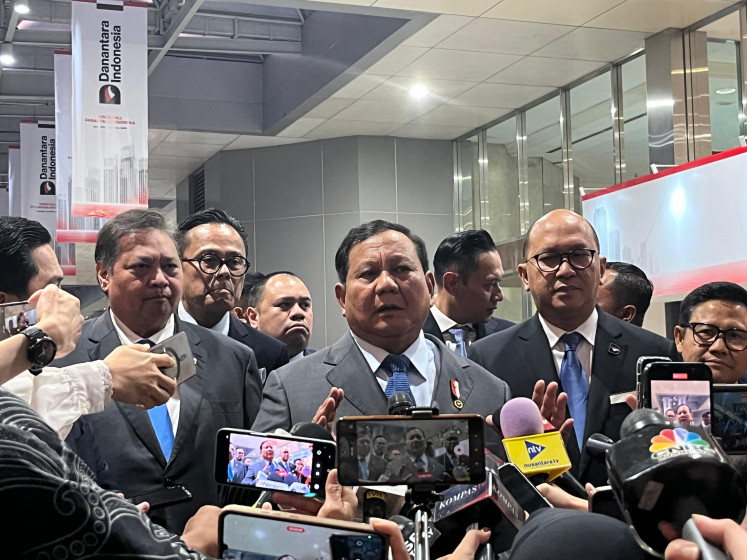Popular Reads
Top Results
Can't find what you're looking for?
View all search resultsPopular Reads
Top Results
Can't find what you're looking for?
View all search resultsGovernment to spend Rp 25 trillion for BPJS
The government expects to spend Rp 25 trillion (US$2
Change text size
Gift Premium Articles
to Anyone
T
he government expects to spend Rp 25 trillion (US$2.65 billion) implementing the Social Security Providers (BPJS) law for the health sector, to guarantee the availability of quality health care for all.
President Susilo Bambang Yu-dhoyono said on Wednesday that the fund would provide a quality, affordable health care system for the country’s whole population.
“In a cabinet meeting some days ago, I said that initial investment in BPJS would be quite large. But it doesn’t really matter as it will be a breakthrough in the way we deliver health care services to the people,” Yudhoyono said during a meeting at the Health Ministry office.
Yudhoyono said he had instructed Finance Minister Agus Martowardojo to set up funding for BPJS implementation.
“We may need more than Rp 25 trillion in initial investment. Such a huge investment can really change the situation. In the future, people will be certain of quality health care whenever they get sick,” he said.
Yudhoyono said that the rich could pay health care costs themselves.
“Affluent people can spend their money on the medication they want. The government only covers those who can’t afford health care,” he added.
After a protracted debate, the House of Representatives passed the bill in October 2011. Under the BPJS, the government will fully cover people deemed too poor to afford a minimal standard of health care services.
As of 2011, 145.3 million or 63 percent of the country’s population, are covered by various health schemes, such as private insurance, programs for civil servants and professional workers, local government-funded Jamkesda health coverage and government-funded Jamkesma social protection.
“We will increase the realm of services in stages, and by Yudhoyono said that the rich could pay health care costs themselves.,” Health Minister Nafsiah Mboi told reporters.
Government-sponsored Jamkesma programs, for example, are projected to cover 86.4 million people in 2013, up by 10 million people from the current 76.4 million beneficiaries categorized as “poor” and “near poor”. In 2012, the government allocated Rp 7.29 trillion for Jamkesma, up from Rp 6.2 trillion in 2011 and Rp 5 trillion in 2010.
Lack of facilities and skilled workers are blamed for poor health care in the country. About 100,000 third-class beds are still required. Health care workers are needed to meet the demand.
“The number of physicians in general practice is enough although they are not well distributed, especially in remote areas; but we still need about 4,000 dentists,” said Nafsiah.
According to the government, 96.7 million people will be considered eligible to receive health coverage provided by the government once the BPJS takes effect in 2014. Insurance premium will cost on average Rp 27,000 per people.
“We haven’t decided the amount of the premium. We still need to discuss this matter,” said Deputy Health Minister Ali Ghufron Mukti, who also heads the BPJS working unit.










